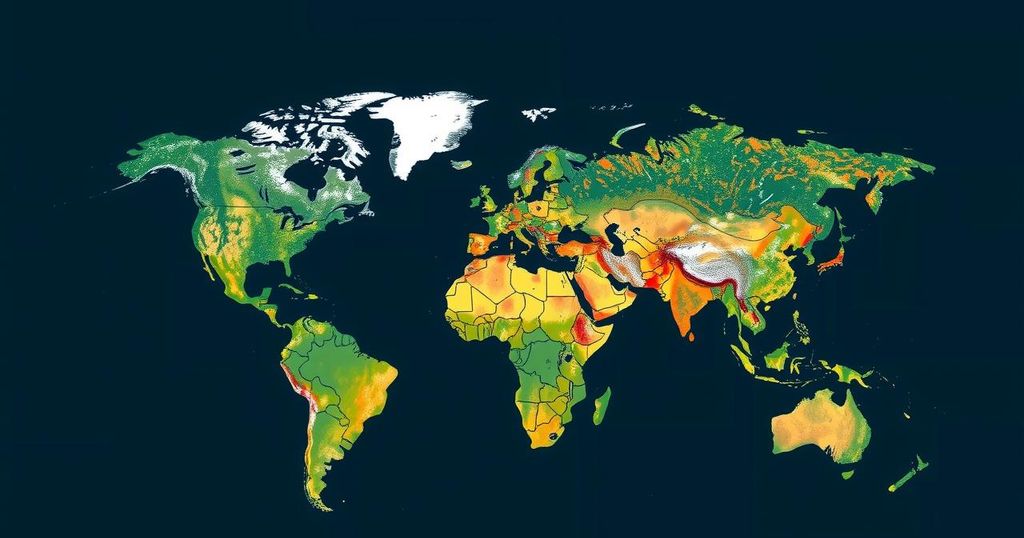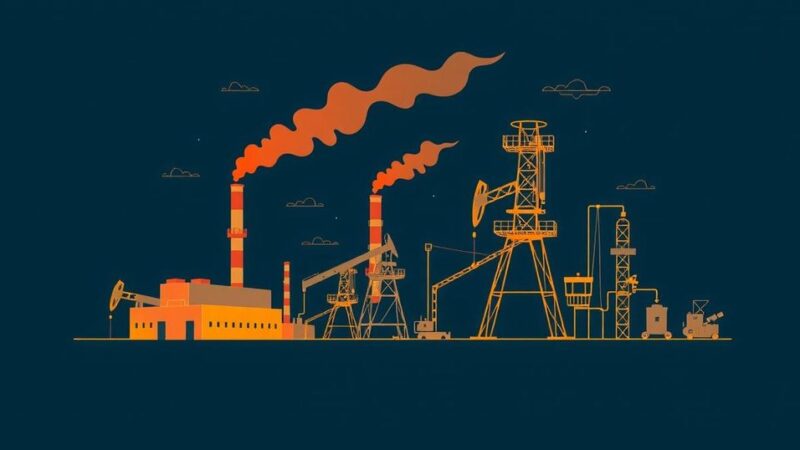The Wilson Center hosted a dialogue on climate security, highlighting the urgent need to address the effects of climate change on global stability. Panelists included experts who discussed the connections between environmental stress, conflict risks, and the evolution of U.S. foreign policy, emphasizing the necessity of cooperative climate action for fostering security and resilience.
The pressing challenges posed by climate change have consequential impacts on global security dynamics, necessitating an urgent reassessment of how nations approach foreign policy in relation to environmental issues. Extreme weather events, such as unprecedented heatwaves and extensive flooding, exacerbate vulnerabilities within communities, heightening the risk of conflict and perpetuating socioeconomic inequalities. In recognition of these challenges, a commitment to a global energy transition has emerged, although this shift is not without its geopolitical risks. The interrelationship between climate change, security, and conflict has thus gained prominence, a sentiment echoed in the recent COP28 Declaration on Climate, Relief, Recovery, and Peace. To discuss these intricate dynamics, the Wilson Center, in collaboration with the Center for Climate & Security, hosted an enlightening dialogue on October 1, featuring esteemed experts in the field. The panel included Sherri Goodman, a climate security pioneer and author of “Threat Multiplier: Climate, Military Leadership, and the Fight for Global Security;” environmental journalist Peter Schwartzstein, whose work “The Heat and the Fury: On the Frontlines of Climate Violence” addresses the grim realities of climate impact; Merissa Khurma, an expert on Middle Eastern affairs; and Anne Witkowsky, Assistant Secretary for the Bureau of Conflict and Stabilization Operations, U.S. Department of State. This event highlighted the crucial intersection of climate change and security risks globally, the evolution of U.S. engagement in climate security, and the potential for fostering stability through cooperative climate action. Insights from the speakers underscored the argument that addressing climate change can play a pivotal role in mitigating conflict and promoting peace.
Climate change is increasingly recognized as a multifaceted threat to global security, influencing conflict patterns and exacerbating existing vulnerabilities within populations. As nations strive to adapt to the realities of climate impacts, there is a growing acknowledgment of how these environmental challenges intersect with political and social stability. Major international gatherings, such as the COP28, reflect the urgency of integrating climate considerations into comprehensive security strategies, revealing a collective consciousness regarding the implications of climate-related phenomena on marginalized communities and geopolitical relations. Understanding these dynamics is essential for informing effective foreign policy decisions and fostering international cooperation.
The dialogue facilitated by the Wilson Center represents not only a response to the urgent realities of climate change but also a call to action for global leaders. By recognizing the intricate relationship between climate and security, U.S. foreign policy can evolve to prioritize strategies that enhance resilience while mitigating conflict risks. The insights from leading experts suggest that proactive engagement in climate action can ultimately contribute to a more stable and cooperative international landscape, underscoring the potential for peace in light of environmental challenges.
Original Source: www.wilsoncenter.org






